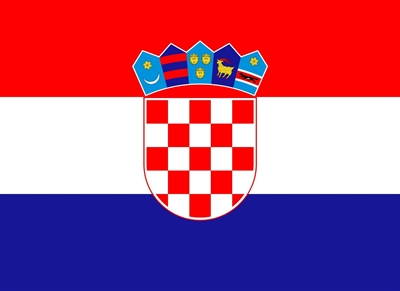Croatia - Committee on the Elimination of Discrimination Against Women - Domestic Violence - October 2014
Country: Croatia
Issues: Gender-Based Violence, International Advocacy, Policing, Women's Rights
Mechanism: UN Committee on the Elimination of Discrimination against Women
Report Type: List of Issues
Submission to the Committee on the Elimination of Discrimination against
Women
for the 61st Session: Pre-Sessional Working Group
Adoption of List of Issues
(10 - 14 November 2014)
Partner: Autonomous Women’s House Zagreb
The Croatian government fails to adequately protect women from domestic violence, which violates women’s right to life, bodily security and integrity, equal protection, and freedom from torture. In 2014, there were approximately 12,067 domestic violence offenses under the domestic violence law in Croatia. This number does not include the thousands of cases that go unreported or that are not considered criminal-level offenses. The Advocates for Human Rights (“The Advocates”) and Autonomous Women’s House Zagreb (“AZKZ”) have partnered to highlight the widespread problem of domestic violence in Croatia by submitting a shadow report to the United Nations Human Rights Committee for the upcoming review in March 2015 of Croatia’s compliance with the International Covenant on Civil and Political Rights.
Since Croatia’s last review by the Human Rights Committee, there have been a few steps forward in addressing domestic violence. Croatia amended the State Attorneys’ Law to remove a harmful provision that gave prosecutors discretion to drop a criminal case of domestic violence under certain circumstances not related to whether the defendant committed the crime. The Croatian state report also describes an agreement between ministries to promote cooperation on violence against women; this inter-ministerial agreement, however, fails to involve autonomous shelters and women’s NGOs that protect victims.
Many impediments remain to the implementation of the Law on Protecting against Domestic Violence (LPDV) and other legal frameworks. Most notable is a new Family Law that includes many harmful provisions including mandatory mediation and prohibition from leaving a city. The Advocates and AZKZ make several recommendations to the Croatian government, including:
1. Provide adequate, secure, and consistent funding to autonomous women's shelters and adopt legislation that would guarantee such funding to the shelters while ensuring their autonomy;
2. Train police officers, prosecutors, and judges on identifying the primary aggressor and assessing defensive injuries to reduce the number of dual arrests, chargers and convictions of victims of domestic violence;
3. Amend the Criminal Code to include a specific crime of domestic violence and incorporate coercive control so that domestic violence offenses do not have to be prosecuted as bodily injuries;
4. Add precaution measures of a prohibition against stalking, harassment, and communication; and eviction, which can protect victim safety before a judgment is issued, and train and encourage judges and police officers to impose these measures;
5. Pending the decision of the Constitutional Court, amend the new Family Law to ensure that harmful provisions, including mandatory mediation, the prohibition from leaving a city, non-compliance with a parenting agreement, and requirements to cooperate with their perpetrator in cases where domestic violence is present, are excluded;
6. Expand the scope of the LPDV to protect victims of domestic violence who have never lived with their offender, but are in or have been in an intimate relationship;
7. Ensure the punishment of violations of protective measures and enforce punishments of offenders under the LPDV;
8. Train criminal judges on the application of and promote their use of eviction and restraining order safety measures under the Criminal Code and precautionary measures under the Criminal Procedure Code in domestic violence cases.




